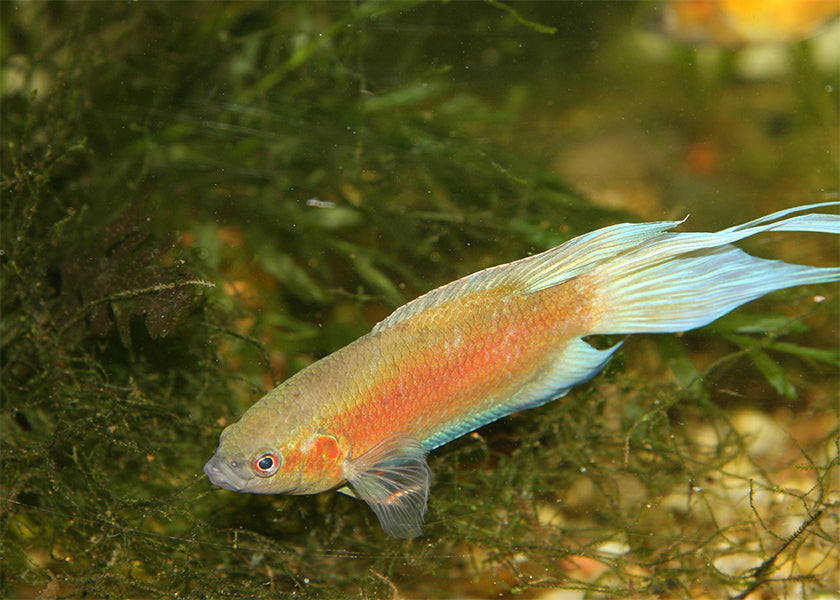Description
The Paradise Fish, also known as the Macropodus opercularis or Apricot Paradise Fish, is a beautiful and lively freshwater fish that can be a great addition to your aquarium. Tolerates a wide range of temperatures and water conditions. A good fish for mosquito control in outdoor patio water features.
Features Of Apricot Paradise Fish
- Originated from Southeast Asia
- Males develop very long finnage and become more brightly coloured
- Similar to bettas indisposition, male paradise fish generally do not get along together unless the tank is very large with lots of decor for hiding and retreat
- Life Span : 8-9 yrs
Apricot Paradise Fish : Care, Diet and Tank Mates
The Best Aquarium Size for Apricot Paradise Fish:
Provide a minimum tank size of 30 liters for a single Paradise Fish. If you plan to keep a pair or a small group, a larger tank of 120 liters or more is recommended.
Apricot Paradise Fish Tank Mate Compatibility:
Paradise fish are not good tank mates with fish their size, in fact, they are downright nasty, they rip tails and sometimes kill other smaller fish. They really prefer to live alone, but will accept some other species of fish as long as they are larger and non-aggressive, like Gouramis, and some species of catfish.
Diet & Feeding:
Paradise Fish are omnivorous and will accept a variety of foods. Offer a balanced diet consisting of high-quality flake or pellet food as a staple. Supplement their diet with live or frozen foods like bloodworms, brine shrimp, daphnia, and small insects to provide enrichment and enhance their coloration.
Apricot Paradise Fish Tank Setup
-
Substrate: Use a fine gravel or sand substrate to mimic their natural environment.
-
Plants: Include live or artificial plants to provide hiding spots and create a natural feel. Paradise Fish appreciate dense vegetation, so consider adding floating plants as well.
-
Hiding Places: Add caves, driftwood, or other suitable structures to create hiding places for your fish. This helps reduce stress and provides territorial boundaries.
-
Filtration and Water Quality: Use a quality filtration system to maintain water quality and remove waste. A combination of mechanical, chemical, and biological filtration is ideal.

